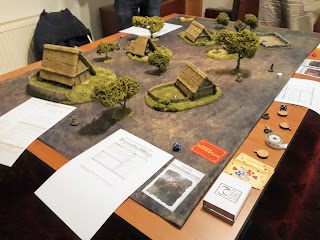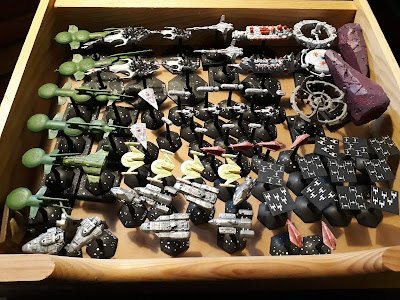Last week I finished reading the latest book by Jon Peterson, Game Wizards. I enjoyed reading his previous books, Playing at the World, and The Elusive Shift, so I was looking forward to this title as well.
It chronicles the early days of TSR - publishers of Dungeons and Dragons - during the 70s and 80s. It's the story about how a new game format (the original D&D) led to starting a company to publish that game. Sadly, the story isn't a happy one. Soon, the company is quagmired in all sorts of lawsuits, ending with its sale to Wizards of the Coast in the mid 90s.
I only started 'gaming' somewhere around 1981 with Avalon Hill wargames, and picked up my first roleplaying game in 1983 or 1984. So I didn't experience the early days of D&D and TSR firsthand, but over the years I read about many of the stories. As a gamer in the late 80s, TSR didn't have a good reputation at all in the gaming circles I frequented. We didn't consider (A)D&D a game worthy or our sophisticated needs. Companies such as Chaosium (Call of Cthulhu, Runequest, ...), Games Workshop (Warhammer, ...), FASA (Battletech, ...), ICE (Rolemaster, ...) were showing us the light. Although I did buy the occasional (A)D&D product, I never participated in a campaign. "D&D? Who still plays that these days?". This was also the time TSR was always written as T$R on internet forums such as rec.games.frp. I guess the zeitgeist was against them. This changed somewhat when AD&D 2nd edition was published, but by then, my roleplaying preferences had firmly developed. Then in 1993 Magic The Gathering was published, and I guess TSR never really could cope with that paradigm shift.
Anyway, all this to say that over the past decades, I never held TSR in high regard. Some of their products were cool, but overall, it was never my "go-to company" for my gaming needs. I of course did admire the creative genius of Dave Arneson and Gary Gygax, but it sort of was always blurred by all the stories about the lawsuits. Only during the past 10 years or so, with an increased interest into the real origins of our hobby (as opposed to propaganda), the true story is seeing the light of day. But what about the book? It is an enjoyable read for anyone interested in the history of roleplaying during the 70s, although most if not all of the content is about the history of the company, and not so much about the history of the game (both other books by Jon Peterson do a much better job at that).
So what did I learn?
First of all, creating a game is something different from publishing a game is something different from running a small company is something different from running a big company. I think the history of TSR illustrates this very well, with the original designers quickly hitting their limits about what they can do successfully - they can design games (Arneson probably contributed the most), they can edit and publish a game (Gygax did most of the work here), but they miserably failed at running a company. And once large amounts of money became involved, the whole enterprise quickly dissolved in petty fights.
Second, a company should stay focused on its core products. Gygax spending large amounts of time in California trying to start up a D&D movie does seem extravagant even back then when they were riding the wave of success. What was he thinking? The only thing that came out of it was a childish cartoon show, IMO far removed from what the game really is.
Third, I was surprised that even in such a toxic atmosphere, any creative work was done at all. So there must have been something in the air that made many of the creative writers putting heir heart and soul in TSR products.
As I said, a good book. Now I am waiting for the book on the history of Games Workshop, written by Ian Livingstone. Hopefully not too long ...






















































